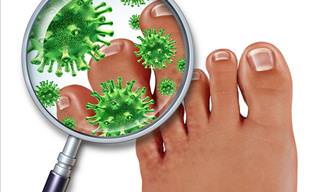It isn’t often that we think about how much light affects our mood, but it’s no coincidence that you find yourself smiling on sunny days, or feeling really creative when the lights in your space are turned down low. Find out how different kinds of light can have a tangible effect on emotional health and well-being below:
1. Bright Light Can Heighten Emotions

A study conducted back in 2014 involved asking participants about how they perceived the aggressiveness of a fictional character, the attractiveness of three women, as well as the appeal of a series of different sauces for chicken wings. In addition, participants were asked to report how they felt about a series of words with either positive, negative or neutral connotations.
It found that participants who were seated in a brightly-lit room judged the fictional character to be more aggressive than those who were not. They also perceived the women to be more attractive, expressed a preference for spicier chicken wing sauces and felt more strongly about positive and negative words.
2. Blue Light Can Make You Feel Energetic
Exposure to blue light can actually give you an energy boost and make you feel more alert during the day. A recent study found that blue light exposure resulted in increased productivity among its participants. They were able to complete cognitive tasks more quickly and accurately when compared to participants in the study’s control group. What’s more is that blue light exposure was found to heighten cognitive ability in participants for a full half hour after they were no longer exposed to it.
3. Blue Light Can Be a Problem at Bedtime

The problem with blue light is that it can prevent you from sleeping at night. Smartphones, tablets, and laptops all emit blue light, so it’s advisable not to use any of these devices at least an hour before you go to bed. Blue light exposure at night can cause numerous side effects, from impaired judgment to heightened stress and even higher blood pressure. This is because it suppresses the body’s production of melatonin, which is the hormone that induces sleep.
4. Natural Light is What Makes You Happiest
Natural sunlight is the best kind of light for health and well-being. A study conducted in 2014 found that catching just a little natural sunlight each day can make all the difference. Participants who had windows in their office tended to exercise more, got more sleep and had a greater sense of well-being than participants who did not. It’s believed that exposure to natural light helps the body to stick to its natural circadian rhythms, knowing when it’s the right time to feel alert and energetic, and when to feel sleepy.
5. Natural Light Can Alleviate Symptoms of Depression

Several studies have found that natural light can help to reduce symptoms of depression. Although it cannot alleviate these symptoms alone, it is a useful tool for helping to reduce them when combined with antidepressant medication. Furthermore, lamps that are designed to mimic natural light are known to help alleviate symptoms of depression when a patient is exposed to them regularly and over an extended period of time.
6. Light Can Affect Your Appetite
Light even has a bearing on our appetite and eating habits. It can affect the amount you eat, what you desire to eat and even how you perceive flavor. As a general rule, eating in a restaurant with soft, dim lighting will result in you eating both less and slower. Darker restaurants, however, increase the likelihood of a diner ordering an unhealthy dish. Researchers think that this is down to softer lighting making you feel less alert and more relaxed, making you think less about your food selection, but it also means that you’ll probably eat your meal at a more leisurely pace instead of devouring it.
Light can also have an impact on how things taste. One study found that background lighting affected how participants liked a particular brand of wine, and the cause of this was determined to be how different kinds of light affected the wine’s color.
Content source
Images by Deposit Photos.
 Go to BabaMail
Go to BabaMail
























































